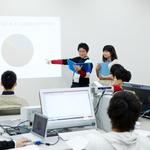Introduction to Teikyo University
Overview
Teikyo University is a famous private university located in Tokyo, Japan, founded in 1966. Its predecessor was the Teikyo Business School established by Okinaga Sobei in 1931. The school was formally founded by Doctor of Medicine Soichi Okinaga. After years of development, it has become a comprehensive university covering multiple disciplines. Teikyo University is famous for its high-quality education and rich academic resources, especially in the fields of medicine, pharmacy, economics, etc.
Campus
The main campus of Teikyo University is located in Tokyo, with the following addresses:
Gokisho Campus: 1-1-1 Gokisho, Hachioji City, Tokyo
Itabashi Campus: 1-2-1 Daisencho, Itabashi District, Tokyo
Fukuoka Campus: 2-13-1 Momochihama, Sawara District, Fukuoka City, Fukuoka Prefecture
Educational Philosophy
The educational philosophy of Teikyo University is "self-flow" (i.e. self-thinking, self-judgment, self-action, and self-responsibility for results). The school emphasizes the cultivation of students' independent thinking and practical abilities, and is committed to cultivating high-quality talents with professional knowledge and practical abilities through a comprehensive education system, and contributing to the development of society.
Disciplines and Majors
Teikyo University has multiple faculties and graduate schools covering a wide range of fields:
Faculty of Medicine
Medical Department: Learn basic theories and practical methods such as basic medicine and clinical medicine, and cultivate professional doctors who can work in hospitals, clinics and other fields.
Department of Pharmacy
Pharmacy: Learn basic theories and practical methods of pharmacy, medicinal chemistry, etc., and cultivate professional pharmacists who can work in pharmaceutical companies, medical institutions and other fields.
Department of Economics
Economics: Learn basic theories and practical methods of economics, finance, etc., and cultivate professional talents who can work in financial institutions, enterprises and other fields.
Department of Law
Law: Learn basic theories and practical methods of law, jurisprudence, etc., and cultivate professional talents who can work in law firms, government agencies and other fields.
Department of Literature
Japanese Literature: Learn basic theories and practical methods of Japanese literature, culture, etc., and cultivate professional talents who can work in education, cultural promotion and other fields.
English: Learn basic theories and practical methods of English language and literature, cultural studies, etc., and cultivate professional talents who can work in education, translation and other fields.
Department of Foreign Languages
English: Learn basic theories and practical methods of English language and literature, cultural studies, etc., and cultivate professional talents who can work in education, translation and other fields.
Chinese Language: Learn basic theories and practical methods of Chinese language and literature, cultural studies, etc., and cultivate professional talents who can work in education, translation and other fields.
Faculty of Education
Elementary Education: Learn the basic theories and practical methods of elementary education, and cultivate professionals who can work in the fields of elementary education and educational administration.
Education: Learn the basic theories and practical methods of pedagogy, educational psychology, etc., and cultivate professionals who can work in the fields of educational administration and educational research.
Faculty of Science and Engineering
Information Science: Learn the basic theories and practical methods of computer science, information systems, etc., and cultivate professionals who can work in the IT industry, information system development, etc.
Mechanical Engineering: Learn the basic theories and practical methods of mechanical engineering, mechanical design, etc., and cultivate professionals who can work in the fields of mechanical manufacturing and mechanical design.
Electrical and Electronic Engineering: Learn the basic theories and practical methods of electrical engineering, electronic engineering, etc., and cultivate professionals who can work in the fields of power systems and electronic equipment.
Faculty of Medical Technology
Radiological Technology: Learn the basic theories and practical methods of radiation technology, and cultivate professionals who can work in the fields of radiation technology and medical imaging.
Clinical Examination: Learn the basic theories and practical methods of clinical testing, and cultivate professionals who can work in the fields of clinical testing and medical laboratories.
Graduate School
Medical Research School: offers master's and doctoral programs in medicine.
Pharmacy Research School: offers master's and doctoral programs in pharmacy.
Economic Research School: offers master's and doctoral programs in economics.
Law Research School: offers master's and doctoral programs in law.
Literature Research School: offers master's and doctoral programs in literature.
Foreign Language Research School: offers master's and doctoral programs in foreign languages.
Science and Engineering Research School: offers master's and doctoral programs in science and engineering.
Medical Technology Research School: offers master's and doctoral programs in medical technology.
Specialized Courses
Medical Research School: studies basic theories and practical methods of basic medicine, clinical medicine, etc.
Pharmacy Research School: studies basic theories and practical methods of pharmacy, pharmaceutical chemistry, etc.
Economic Research School: studies basic theories and practical methods of economics, finance, etc.
Law Research School: studies basic theories and practical methods of law, jurisprudence, etc.
Japanese Literature Research School: studies basic theories and practical methods of Japanese literature, culture, etc.
English subject: learn basic theories and practical methods of English language and literature, cultural studies, etc.
English subject: learn basic theories and practical methods of English language and literature, cultural studies, etc.
Chinese subject: learn basic theories and practical methods of Chinese language and literature, cultural studies, etc.
Primary education subject: learn basic theories and practical methods of primary education.
Education subject: learn basic theories and practical methods of pedagogy, educational psychology, etc.
Information science subject: learn basic theories and practical methods of computer science, information systems, etc.
Mechanical engineering subject: learn basic theories and practical methods of mechanical engineering, mechanical design, etc.
Electrical and electronic engineering subject: learn basic theories and practical methods of electrical engineering, electronic engineering, etc.
Radiation technology subject: learn basic theories and practical methods of radiation technology.
Clinical inspection subject: learn basic theories and practical methods of clinical inspection.
Practical teaching
Teikyo University attaches great importance to practical teaching, with advanced laboratories and practice bases, providing students with rich practical teaching resources. The school has established cooperative relations with many companies and research institutions, providing students with rich internship and practice opportunities. The school also has laboratories, studios, internship bases and other practical platforms, providing students with a platform for practical operation.
International Exchange
Teikyo University actively participates in international exchange programs and has established cooperative relations with universities in many countries to provide students with opportunities for overseas study and exchange. The school has an International Student Office to provide comprehensive support and services for international students. The school also has English intensive courses and international exchange student programs to help students improve their English level and international competitiveness.
Employment Situation
Teikyo University performs well in terms of employment rate. According to the latest statistics, the employment rate of graduates is relatively high. The school has a career guidance center to provide students with employment consultation, resume writing guidance and interview skills training to help students find jobs smoothly. Graduates' employment units include medical institutions, government agencies, enterprises and research institutions.
Cost
Admission fee: about 200,000 yen
Tuition fee:
About 600,000 to 1 million yen per year (depending on different departments and subjects)
The specific cost may change, it is recommended to consult the school directly for the latest information.
Campus
Teikyo University has a beautiful campus environment and complete facilities, including modern teaching buildings, laboratories, libraries and sports facilities. The school also has student dormitories to provide convenient living conditions for out-of-town students.
Contact information
Tel: +81-42-665-1111
Fax: +81-42-665-1112
Email: info@teikyo-u.ac.jp
Other information
Internship opportunities: The school has established cooperative relationships with many companies and research institutions, providing students with abundant internship and practice opportunities.
Employment support: The school has a career guidance center to provide students with employment consultation, resume writing guidance, interview skills training and other services to help students find employment smoothly.
Scholarship system: The school has a variety of scholarship systems to help students reduce their financial burden.
-
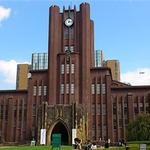
The University of Tokyo
-
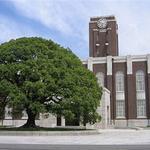
Kyoto University
-
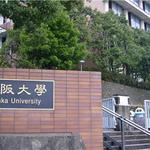
Osaka University
-
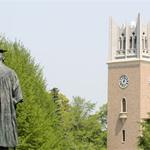
Waseda University
-
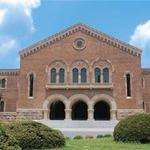
Hitotsubashi University
-
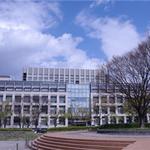
Nagoya University
-
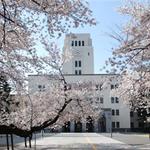
Tokyo Institute of Technology
-
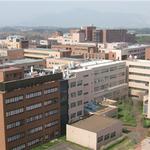
University of Tsukuba
-
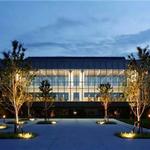
Keio University
-
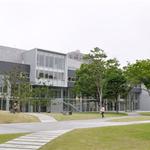
Tohoku University
-

Mesoamerican University
-

Istmo University
-

Mariano Galvez University of Guatemala
-

Regional University of Guatemala
-

Galileo University
-

Francisco Marroquín University
-

Rafael Landívar University
-

University of the Valley of Guatemala
-

University of San Carlos of Guatemala
-

Technological Institute of Tlaxcala Plateau
-

Golfo University
-

Technological University of South Sonora
-

Technological University of Huejotzingo
-

Tizimín Institute of Technology
-

Chilpancingo Institute of Technology

